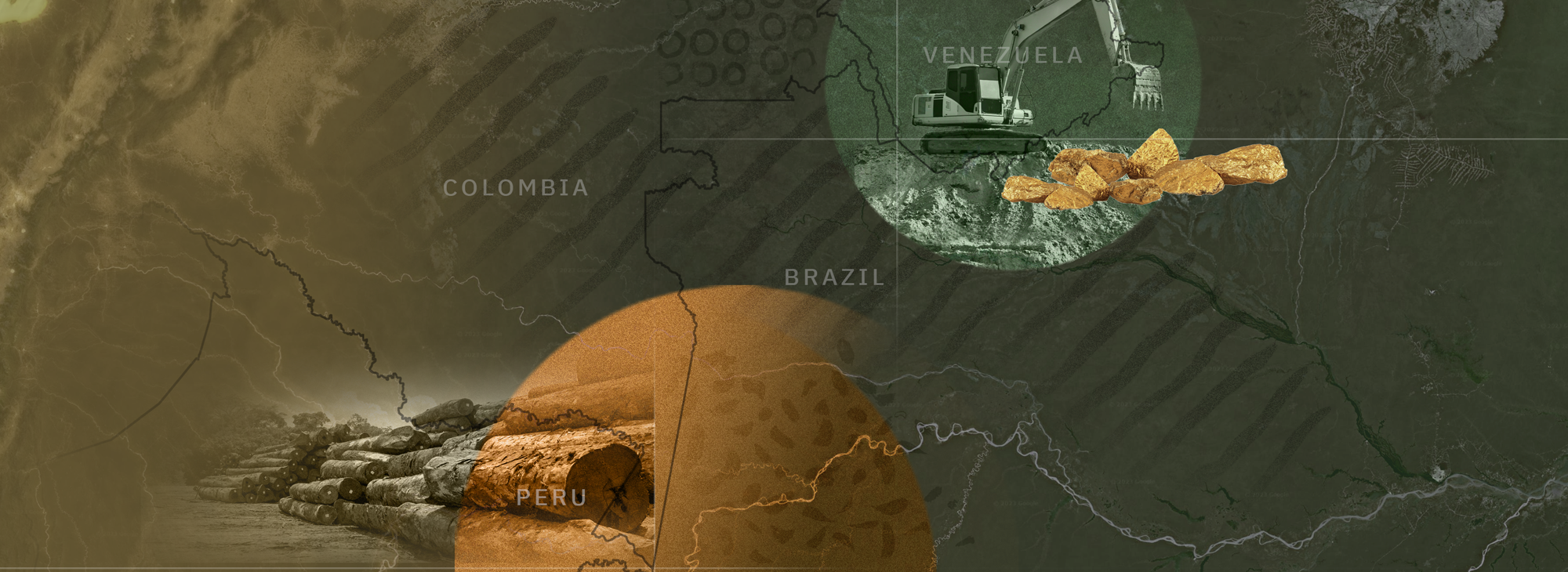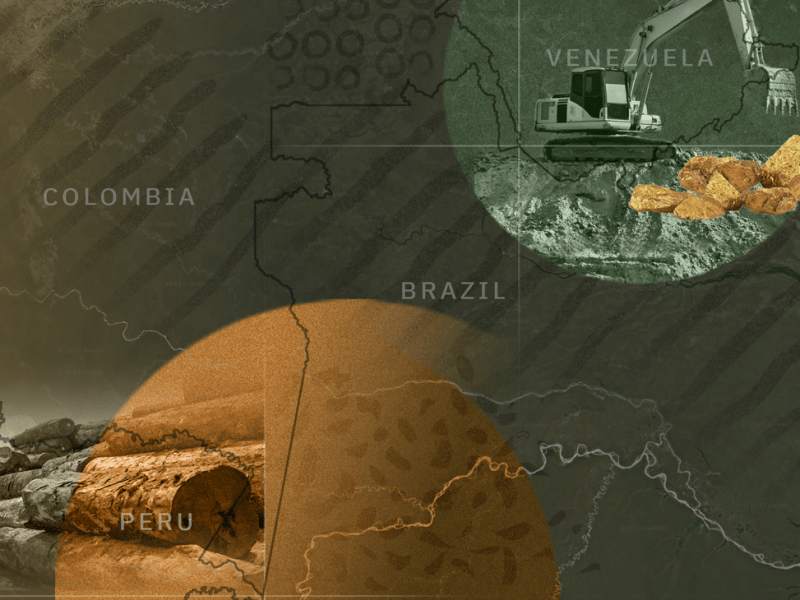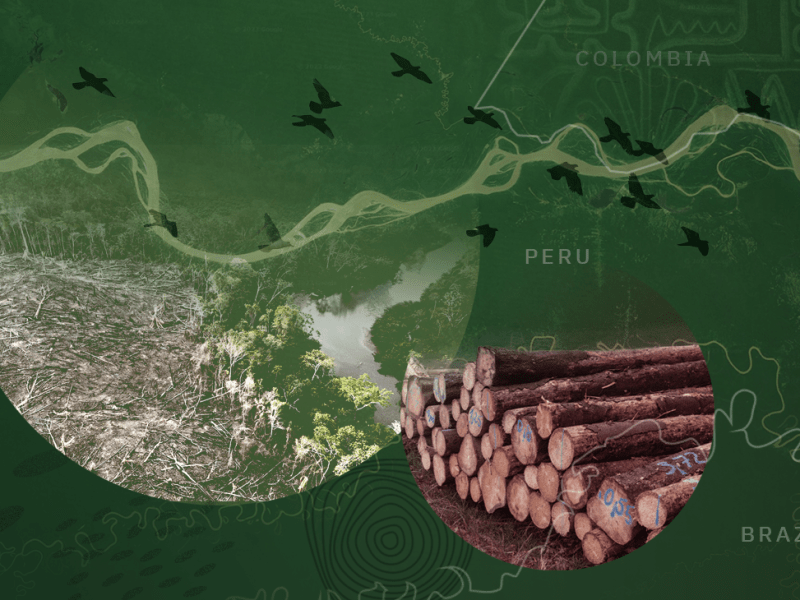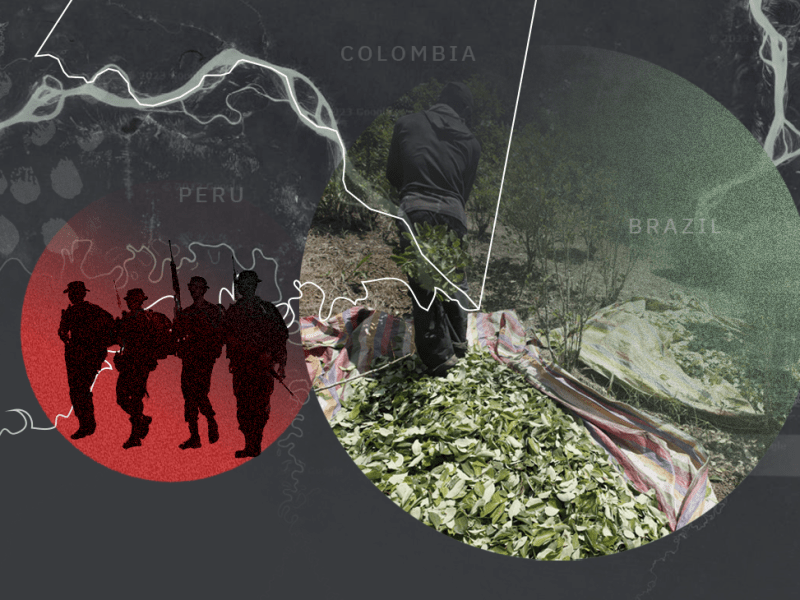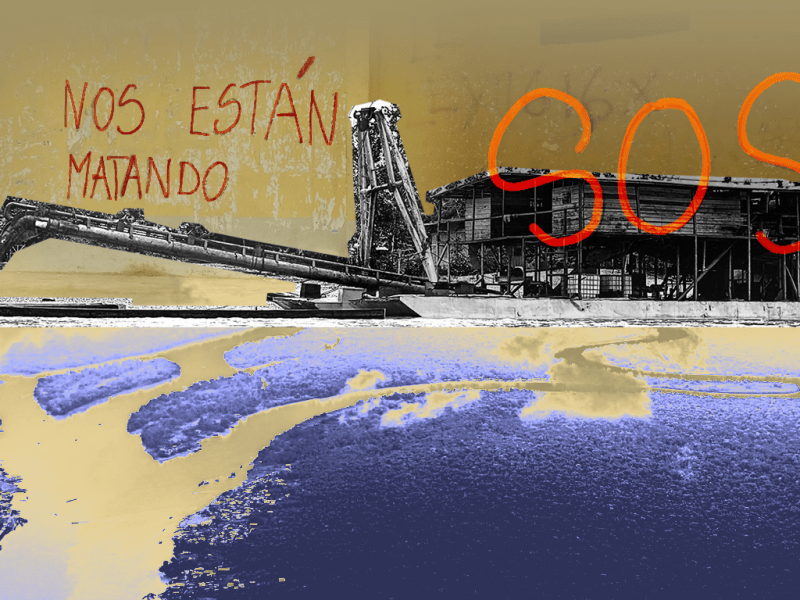The Amazon’s tri-border regions are under attack.
Across the more than 4,000 kilometers of border that divide Colombia, Venezuela, and Brazil, the gold mining rush has threatened the very existence of Indigenous communities and trampled on national parks. Illegal gold mining has soared to become the biggest destroyer of the rainforest, especially when supported by guerrilla groups, business owners, and political elites alike.
Meanwhile, on the border between Colombia, Peru, and Brazil, illegal logging and illicit crops are expanding as quickly as the loggers can tear down the trees. After promising jobs and training to Indigenous residents and gaining their trust, brokers become proxies for the forest management plans that these communities oversee. This allows them to launder illegal timber.
This five-part investigation traces the actors involved in environmental crimes and reveals the supply chains that support the looting of these border areas. To do so, InSight Crime has partnered with the Igarapé Institute, an independent think tank located in Brazil that focuses on development, security, and climate issues.
Investigation Chapters
Environmental Crimes Plague Amazon’s Tri-Border Regions
Deep in the vast jungle of the Amazon, critical primary forests are being razed to mine gold, grow coca, and harvest timber.
Digging Into a Toxic Trade: Illegal Mining in Amazon Tri-Border Regions
Illegal mining is by far the most widespread and insidious environmental crime occurring in the Amazon’s tri-border regions.
Beneath the Surface of Timber Trafficking on the Peru-Colombia-Brazil Border
In the Amazon’s tri-border areas, illegal logging is expanding, due to the low cost of land, and few controls on deforestation.
Expanding Drug Trafficking on Peru’s Borders With Colombia and Brazil
The tri-border where Colombia, Brazil, and Venezuela meet has long served as a transit corridor for cocaine.
Challenges and Opportunities in Protecting Amazon Tri-Border Regions
Legal protections for the Amazon rainforest are complicated by different domestic laws and competing interests across countries.

